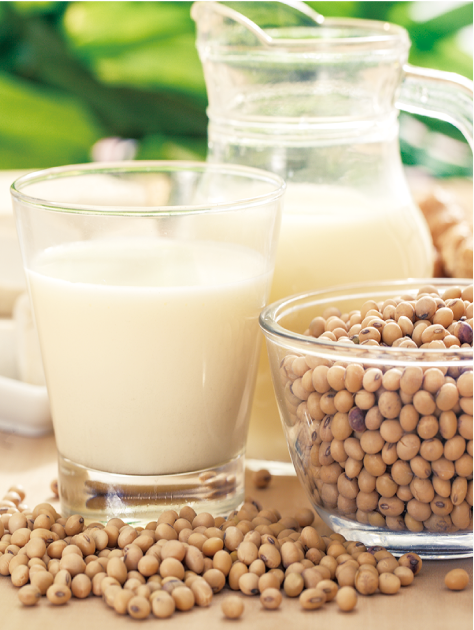
Case Study (Soy Milk)
Raw ingredients
Boil・Separate Straining
Sterilization
Cooling and Shipping
Submerge and Soak・Grind
Concentration measurement of Namago
(bean paste)
Namago (bean paste) can vary in concentration depending on the amount of moisture soy bean contains and how much water is absorbed during the soaking process.The concentration is adjusted by adding water depending on its hardness.
Point
Soy milk can be categorized to nonadjusted, prepared soy milk, and soy milk beverages depending on the amount of soy that remains as solids. This makes the monitoring of the soy concentration to be one of the important factors to manage.
Blending
Mixing Ratio Feedback System
In real time, measure mixing ratio and respond by changing flow volume adjustment.
Bottling
Pre-Bottling Final Check
A final check on the product before bottling is made to make sure it is within specifcations. Controlling the switch between various liquids can help reduce liquid loss.
Case Study (Soy Milk)
Raw ingredients
Boil・Separate Straining
Sterilization
Cooling and Shipping

Check for liquid switch
When switching to a new liquid on the production line, the concentration can be checked for whether or not it has been changed.
Cleaning Solution Concentration Check
Used to monitor appropriate concentration level of the caustic soda or peracetic acid used to sanitize the piping system.
Tofu contains many necessary nutrients for us humans, while soy milk is liquid produced when soy beans are boiled and crushed. The protein in soymilk is said to be nutritious and of a high quality. In fact, the beautifying effects of the isoflavones in soy beans are famous.
To produce tofu, soy beans are soaked in water for a time and then, while adding more water, the beans are grounded to make a paste (Namago). This paste is then boiled and strained, separating it into soy milk and “okara”, or bean curd. Bittern (a coagulant) is added to the soy milk which turns it into tofu and of course frying this creates fried tofu.